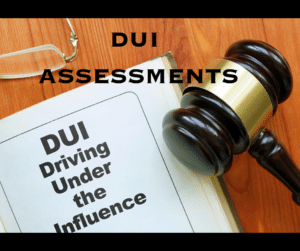
If I am arrested for DUI, am I required to take the BAC at the police station?
Drivers in the State of Washington are assumed to consent to the breathalyzer request (BAC) by simply driving on the state’s roads. This is known as Implied Consent.
The statute reads in part:
RCW 46.20.308
Implied consent—Test refusal—Procedures. (Effective until January 1, 2019.)
(1) Any person who operates a motor vehicle within this state is deemed to have given consent, subject to the provisions of RCW 46.61.506, to a test or tests of his or her breath for the purpose of determining the alcohol concentration in his or her breath if arrested for any offense where, at the time of the arrest, the arresting officer has reasonable grounds to believe the person had been driving or was in actual physical control of a motor vehicle while under the influence of intoxicating liquor or any drug or was in violation of RCW 46.61.503.
(2) The test or tests of breath shall be administered at the direction of a law enforcement officer having reasonable grounds to believe the person to have been driving or in actual physical control of a motor vehicle within this state while under the influence of intoxicating liquor or any drug or the person to have been driving or in actual physical control of a motor vehicle while having alcohol in a concentration in violation of RCW 46.61.503 in his or her system and being under the age of twenty-one. Prior to administering a breath test pursuant to this section, the officer shall inform the person of his or her right under this section to refuse the breath test, and of his or her right to have additional tests administered by any qualified person of his or her choosing as provided in RCW 46.61.506. The officer shall warn the driver, in substantially the following language, that:
(a) If the driver refuses to take the test, the driver’s license, permit, or privilege to drive will be revoked or denied for at least one year; and
(b) If the driver refuses to take the test, the driver’s refusal to take the test may be used in a criminal trial; and
(c) If the driver submits to the test and the test is administered, the driver’s license, permit, or privilege to drive will be suspended, revoked, or denied for at least ninety days if:
(i) The driver is age twenty-one or over and the test indicates either that the alcohol concentration of the driver’s breath is 0.08 or more; or
(ii) The driver is under age twenty-one and the test indicates either that the alcohol concentration of the driver’s breath is 0.02 or more; or
(iii) The driver is under age twenty-one and the driver is in violation of RCW 46.61.502 or 46.61.504; and
******
(4) Nothing in subsection (1), (2), or (3) of this section precludes a law enforcement officer from obtaining a person’s blood to test for alcohol, marijuana, or any drug, pursuant to a search warrant, a valid waiver of the warrant requirement, when exigent circumstances exist, or under any other authority of law. Any blood drawn for the purpose of determining the person’s alcohol, marijuana levels, or any drug, is drawn pursuant to this section when the officer has reasonable grounds to believe that the person is in physical control or driving a vehicle under the influence or in violation of RCW 46.61.503.
Should you take the BAC test?
Boiled down, the statute says that 1) you consent by driving in Washington 2) if you refuse, you will face much stiffer penalties in your criminal case as well as your administrative consequences with DOL, and 3) you are specifically informed that your refusal can be used against you in trial. Your license will automatically be suspended and the suspension will last longer than if you had blown into the BAC. We have some clients happily tell us that they refused the BAC. Most often, these clients are from out of state. Unfortunately, being unaware of the implied consent rule is not a defense. Most defense attorneys will tell you that refusing only makes your case more difficult and the result more unpleasant. Even if your blow is high, there are still many options that your attorney can consider for suppression of the test. With a refusal, the defense attorney is much more limited in negotiation.
The BAC is different from the roadside test
Remember, the BAC at the police station is very different from the portable breath test (PBT). The officer will request that you submit to the PBT while conducting field sobriety tests along the road. There is no implied consent regarding field sobriety tests (FST). They are voluntary and are used by the officer to gain evidence regarding probable cause for your arrest. However, be aware that the Washington State Supreme Court in Mecham did uphold the lower court’s decision to allow the prosecution to reference the refusal to submit to FSTs as evidence and as well as discuss the refusal in closing. State v. Mecham, 186 Wn. 2nd 128 (2016). Defense attorneys everywhere are still scratching their head.
The ruling in Mecham seems to go against everything we know when advising clients that these tests are voluntary. The Court found that the FSTs are seizures but are not searches under the Fourth Amendment and, therefore, you have no Constitutional right to be protected from using that refusal as evidence of guilt. This is perplexing since an officer can’t gather “evidence” of probable cause for the arrest without you engaging in physical actions that the officer orders you to do. Consequently, many defense attorneys believe FSTs are definitely a “search” but we are still bound by the ruling in Mecham.
Regardless of the Mecham ruling, realize there are still opportunities to refute this “evidence of guilt” since there are a countless number of reasons innocent people would not submit to FSTs. For example, there are dozens of health issues that would cause a person to fail these tests and, therefore, they would rather go to the police station and speak to a lawyer about what they should do. It is best to consult with legal counsel if you are concerned about any refusal following a DUI arrest.
Witt Law Group PS is a DUI defense, criminal defense and personal injury law firm with offices in Bremerton and Gig Harbor Washington.




